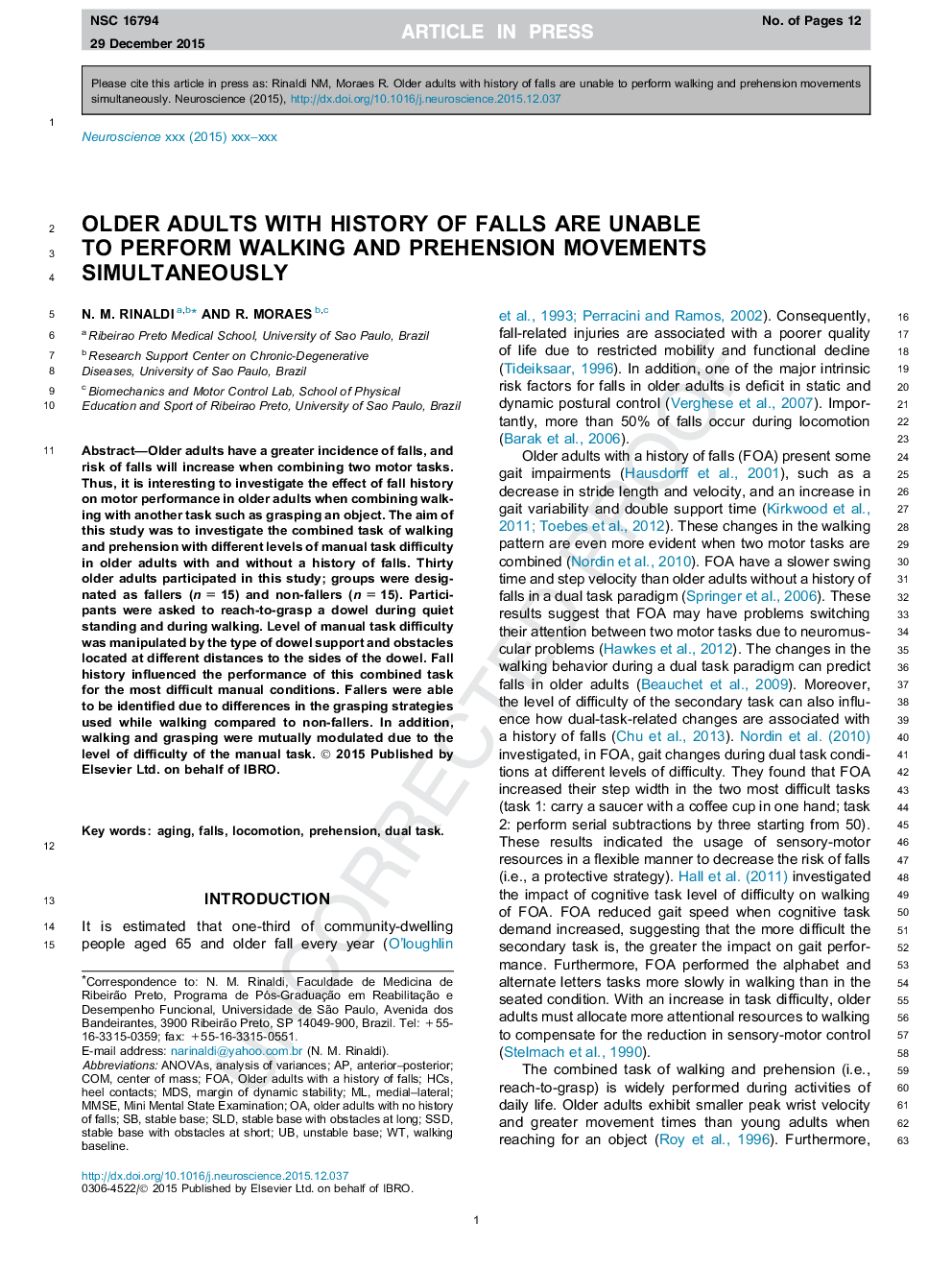| Article ID | Journal | Published Year | Pages | File Type |
|---|---|---|---|---|
| 6271426 | Neuroscience | 2016 | 12 Pages |
Abstract
Older adults have a greater incidence of falls, and risk of falls will increase when combining two motor tasks. Thus, it is interesting to investigate the effect of fall history on motor performance in older adults when combining walking with another task such as grasping an object. The aim of this study was to investigate the combined task of walking and prehension with different levels of manual task difficulty in older adults with and without a history of falls. Thirty older adults participated in this study; groups were designated as fallers (n = 15) and non-fallers (n = 15). Participants were asked to reach-to-grasp a dowel during quiet standing and during walking. Level of manual task difficulty was manipulated by the type of dowel support and obstacles located at different distances to the sides of the dowel. Fall history influenced the performance of this combined task for the most difficult manual conditions. Fallers were able to be identified due to differences in the grasping strategies used while walking compared to non-fallers. In addition, walking and grasping were mutually modulated due to the level of difficulty of the manual task.
Keywords
Related Topics
Life Sciences
Neuroscience
Neuroscience (General)
Authors
N.M. Rinaldi, R. Moraes,
